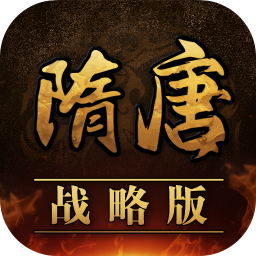How to Say '班主任' in English
作者:佚名 来源:未知 时间:2024-11-11
How to Say “班主任” in English: Unlocking the Role and Terminology

In the realm of education, various titles and roles hold significance, each describing a unique function within the academic setting. Among these, the position of a "班主任" in Chinese education holds a distinctive place, warranting an equivalent expression in English that encapsulates its broad responsibilities and impact. This article aims to clarify how to express the term "班主任" in English and to provide some insights into the role itself, making it appealing to those curious about this pivotal educational figure.

First and foremost, the term "班主任" in English is most commonly translated as "homeroom teacher" or "class advisor." Both phrases serve as accurate representations of the multifaceted duties assigned to this individual in Chinese schools. However, there's a nuanced difference between the two translations, with "homeroom teacher" often emphasizing the administrative aspects, while "class advisor" highlights the counseling and mentoring role. In practical use, both terms can be interchangeable, depending on the context and regional variations in educational terminology.
A closer look at the role of a "班主任" reveals that this position goes beyond the typical duties of a classroom teacher. The "班主任" is responsible for overseeing the academic progress, behavioral discipline, and emotional well-being of a specific class of students. They are the point of contact for parents, tasked with communicating the progress and challenges faced by students. Essentially, the "班主任" serves as a bridge between students, parents, and the school administration, ensuring a smooth flow of information and support.
The administrative aspect of the role cannot be overlooked. "班主任" organize class schedules, handle attendance records, and participate in various school events, representing their class. They are often the first line of defense in resolving conflicts, ensuring a harmonious learning environment. By playing these crucial roles, "班主任" become invaluable members of the school staff, greatly influencing the educational experience of their students.
In addition to administrative duties, the role of a "班主任" as a mentor or advisor is paramount. They offer guidance and support to students, helping them navigate the complexities of growing up and facing life's challenges. This aspect is captured well by the term "class advisor," emphasizing the emotional and psychological support the individual provides. The relationship between a "班主任" and their students can often be described as close and enduring, extending beyond the school walls.
For students, having a supportive and engaged "班主任" can make a significant difference in their educational journey. These educators not only provide academic guidance but also instill values, inspire dreams, and instigate a passion for learning. They become role models, showcasing resilience, empathy, and dedication. Thus, the ability to effectively communicate in English the importance and responsibilities of a "班主任" can foster a greater understanding and appreciation for this unique role in international educational contexts.
Furthermore, as education becomes increasingly globalized, the ability to discuss educational frameworks and personnel in a common language like English becomes essential. International schools, collaborative educational projects, and the exchange of educators all rely on a shared terminology to function effectively. Understanding how to translate the term "班主任" into English, whether as "homeroom teacher" or "class advisor," enables smoother collaboration and understanding among educators from diverse backgrounds.
It's also worth noting that while "班主任" is a common term in Chinese education, some international systems might not have an exact equivalent. For instance, in the American education system, there's no direct counterpart to a "班主任." However, some aspects of the role can be seen in homeroom teachers, counselors, or deans, each focusing on different parts of a student's school experience. Similarly, in the UK, form tutors take charge of monitoring student progress and discipline within a designated form or class group.
By examining the term "班主任" through a global lens, we see that while the precise title may not exist everywhere, the principles and practices associated with this role are universal. They highlight the importance of comprehensive care, personal engagement, and a holistic approach to education. Translating "班主任" into English thus serves as a means to connect these universal principles with the specific responsibilities of this role in Chinese education.
For those eager to dive deeper into the intricacies of the "班主任" role, understanding the history and evolution of this position within Chinese education provides additional insights. Historically, the role has evolved over time, adapting to the changing needs of society and educational philosophy. Early Chinese education placed significant emphasis on character formation and moral education, roles that have continued to influence the duties of "班主任" to this day.
Modern Chinese education still prioritizes these values, reflecting the enduring legacy of traditional teaching practices. Consequently, the "班主任" continues to be a figure of immense importance, charged with not only academic guidance but also the moral and ethical upbringing of students. Their influence extends beyond
- 上一篇: 轻松学会:如何将Switch连接到电视上
- 下一篇: 掌握音乐基础:必知的基本乐理知识大揭秘!






























